Writer Said Candidate Was ‘a Lying MF’
Why ‘Negro’ Deserves Its Capital Letter
The Poor Called Worst Climate Change Victims
Garth Reeves, Miami Times Publisher, Dies at 100
Photos ‘To Die For’ of Jemele Hill’s Wedding
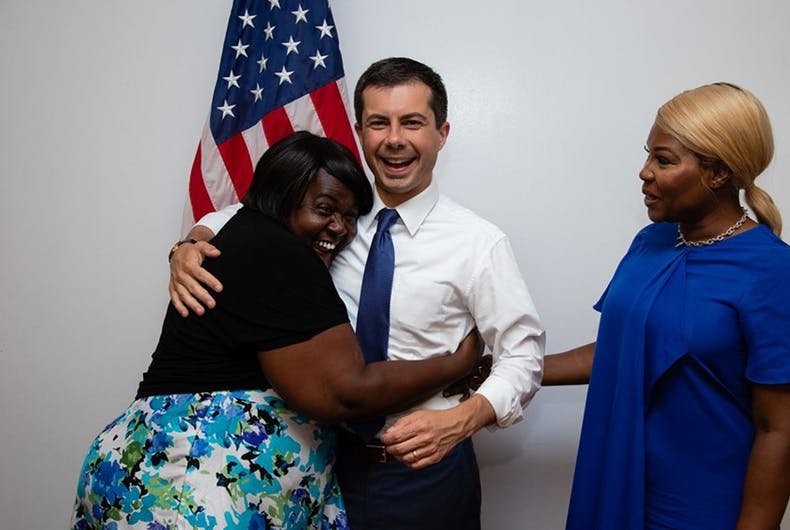
Writer Said Candidate Was ‘a Lying MF’
Democratic presidential candidate Pete Buttigieg called Michael Harriot of theRoot.com on Tuesday to defend himself against Harriot’s charge that, in the words of the Root’s Monday headline, “Pete Buttigieg Is a Lying MF.”
Harriot criticized statements the South Bend, Ind., mayor made in a 2011 clip, “explaining why negro (cq) kids fail at school so often.” His piece was drawing 1.3 million views and 806 comments by Tuesday, according to figures posted on the website.
“ ‘Kids need to see evidence that education is going to work for them,’ Buttigieg explained whitely, when he was running for mayor in 2011. ‘You’re motivated because you believe that at the end of your education, there is a reward; there’s a stable life; there’s a job,’ Harriot wrote. “And there are a lot of kids — especially [in] the lower-income, minority neighborhoods, who literally just haven’t seen it work. There isn’t someone who they know personally who testifies to the value of education.’ . . . ”
As Reid J. Epstein wrote last week in the New York Times, “Mr. Buttigieg has failed to demonstrate even minimal support among African-Americans and Hispanics, critical voting blocs that will have a much larger say after Iowa and New Hampshire, and their nearly all-white electorates, begin the presidential nominating calendar. . . .”
Harriot also wrote, “Pete Buttigieg went to the best educational institutions America has to offer and he — more than anyone on the goddamned planet — knows that everything he just said is a baldfaced lie.
“Majority-minority schools receive $23 billion less in funding than majority-white schools, according to a recent study by EdBuild. Black students in Indiana, the state where Buttigieg serves as mayor, and across the country, are disciplined more harshly than white students. But even though Buttigieg has never attended a school with more than 10 percent black students, he thinks he knows what’s stopping black kids from achieving their educational dreams. . . .”
In addition to phoning Harriot, Buttigieg responded on the campaign trail. ” ‘What I said in that comment before I became mayor does not reflect the totality of my understanding then, and certainly now about the obstacles that students of color face in our system today,’ Mr. Buttigieg told reporters, speaking in Denison, Iowa,” Epstein and Sydney Ember reported Tuesday for the Times.
“ ‘I want to make sure I communicated that I’m very conscious of the advantages and privileges that I have had, not through any great wealth but certainly through education, through the advantages that come with being white and being male, and that’s part of why I know I’ve got to make myself useful as a candidate and as president. ‘ ”
Harriot wrote of the 18-minute, 45-second phone call, ” ‘We have to disabuse ourselves from the notion that the problem with educational inequality is because of an esoteric lack of support,’ I explained. ‘That’s a lie. And a man as educated as yourself knows it’s a lie. And to regurgitate that narrative publicly is not just dangerous, it is malpractice.’
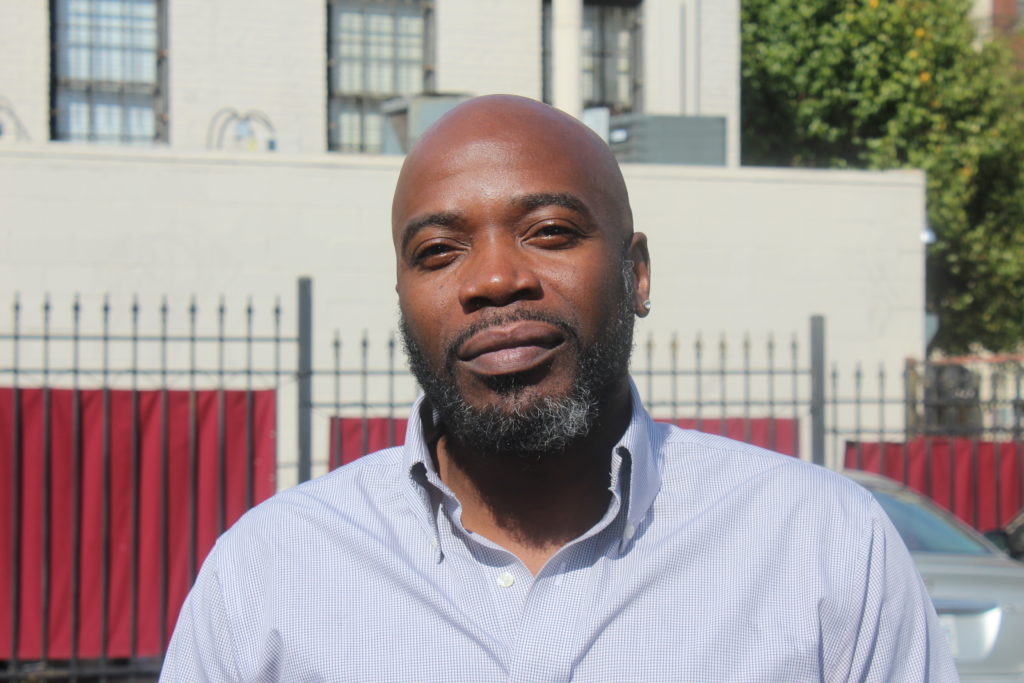 “I conceded that the problems with institutional racism are so complex and go back so far that I’m not sure that anyone — a mayor, a governor or even a president — could fix them. Buttigieg, however, insisted that there are some things that people in power could do to make things more equal, a point I actually agreed with. . . .”
“I conceded that the problems with institutional racism are so complex and go back so far that I’m not sure that anyone — a mayor, a governor or even a president — could fix them. Buttigieg, however, insisted that there are some things that people in power could do to make things more equal, a point I actually agreed with. . . .”
Harriot concluded, “as I told the mayor, the article wasn’t meant to inspire outrage. Its purpose was to make a necessary point about black voters and real issues.
“There is no way that I can know if he is genuinely interested in engaging black voters, attacking discrimination or crossing the racial divide. There are an infinite number of candidates who have waded into black barbershops or sashayed into black pulpits to assure us that they were on our side when they were only interested in our vote. I am not smart or prescient enough to tell the difference.
“The only thing I actually know about Pete Buttigieg is that he is a white man.
“But Pete Buttigieg listened, which is all you can ask a white man to do. . . .”
- Jim Downs, Slate: Queer Like Pete: Buttigieg is getting slammed for being a type of gay man America doesn’t understand
- Ryan Grim and Akela Lacy, the Intercept: Pete Buttigieg Says Marijuana Arrests Signify “Systemic Racism.” His South Bend Police Fit the Bill.
- John McWhorter, the Atlantic: The Woke Attack on Pete Buttigieg: In The Root, Michael Harriot misreads the presidential candidate’s old comments on role models.
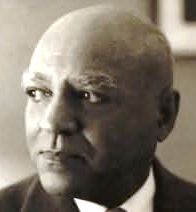
Why ‘Negro’ Deserves Its Capital Letter
The term “Negro,” the preferred label for black people throughout the pre-Black Power 20th century, has fallen so much out of favor that it was reduced to lower case in the first of Michael Harriot’s recent essays for theRoot.com on Pete Buttigieg.
“Our style guide capitalizes it as a noun (as in ‘Michael is a Negro’ but not as an adverb or adjective (as in ‘negro music’),” Harriot explained by email on Wednesday.
He had written, “So, when a clip surfaced of Buttigieg explaining why negro kids fail at school so often, his answer made perfect sense,” and he referred to “negro neighborhoods.”
Such usage dishonors those who spent years campaigning for the mainstream media to capitalize the word as a sign of respect for black people. Where the word fell in a sentence had nothing to do with it.
As David Levering Lewis wrote in 2000 in his award-winning “W.E.B. Du Bois: The Fight for Equality and the American Century, 1919-1963,” about the legendary scholar, activist and journalist, “As recently as November 1925, the New York Times had once again rejected his plea to capitalize Negro.
“Denial of upper-case existence in the newspaper of record merely affirmed symbolically the literal denial of the humanity of an entire race — token diminution that both reflected and sustained the cruelest beliefs and actions in the real world. The policy of the Times suited an era in which thirty-four ‘negroes’ were to be lynched in 1926.”
Du Bois said he took the lower-case “N” as a “personal insult.”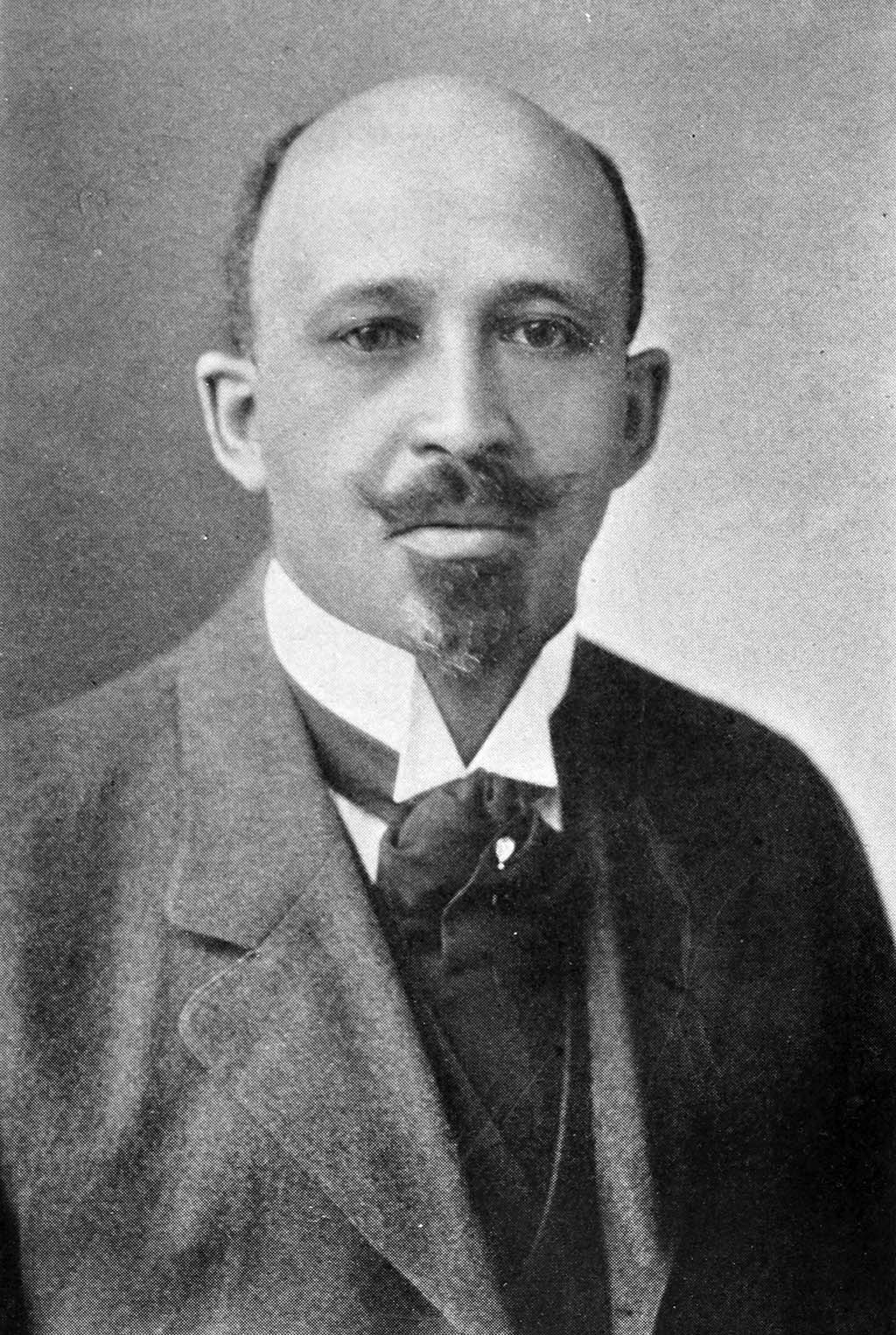
Another crusader was Lester A. Walton, one of the first African Americans to work for the Democratic National Committee, U.S. minister to Liberia before and during World War II, the music and drama critic for New York City’s black newspaper, the New York Age, and writer for the mainstream New York World.
“Capitalization marked nations and races with respect,” Susan Curtis wrote in her 2008 biography, “Colored Memories: A Biographer’s Quest for the Elusive Lester A. Walton.” “Walton’s call for a capitalized name to describe his race was a demand for equality. In 1913, discussions of race revolved around the relative capacities and levels of civilization assigned to each race, conflating a category of identity with inequality. . . . He wanted the Associated Press to instill a different way of thinking about race, identity and individual capacity. . . .”
Finally, on March 7, 1930, the New York Times announced a change in style.
“NEGRO” WITH A CAPITAL “N,” it headlined.
“The tendency in typography is generally toward a lessened use of capital letters. Yet reverence for things held sacred by many, a regard for the fundamental law of the land, a respect for the offices of men in high authority, and certain popular and social traditions have resisted this tendency. Races have their capitalized distinction, as have nationalities, sects and cults, tribes and clans.
“It therefore seems reasonable that a people who had once a proud designation, such as Ethiopians, reaching back into the dawn of history, having come up out of the slavery to which men of English speech subjected them, should now have such recognition as the lifting of the name from the lower case into the upper can give them.
“Major ROBERT R. MOTON of Tuskegee, the foremost representative of the race in America, has written to THE TIMES that his people universally wish to see the word ‘Negro’ capitalized. It is a little thing mechanically to grant, but it is not a small thing in its implications. Every use of the capital ‘N’ becomes a tribute to millions who have risen from a low estate into ‘the brotherhood of the races.’
“THE NEW YORK TIMES now joins many of the leading Southern newspapers as well as most of the Northern in according this recognition. In our ‘style book’ ‘Negro’ is now added to the list of words to be capitalized. It is not merely a typographical change; it is an act in recognition of racial self-respect for those who have been for generations in ‘the lower case.’ “
Coincidentally, writing about another change rooted in “respect,” John Kelly answered this reader question in the Washington Post’s Sunday print edition: “When did The Washington Post change its style for referring to married women from ‘Mrs. [husband’s full name]’ to the woman’s actual name, such as ‘Aurora Poston‘ instead of ‘Mrs. Philander Poston’? (This is a real example from the 1920s.) ”

The Poor Called Worst Climate Change Victims
“Early yesterday, the United Nations Environment Program published its annual assessment of greenhouse gas emissions,” Jon Allsop wrote Wednesday for Columbia Journalism Review. “It described its own findings as ‘bleak.’ . . .
“The press is still not doing enough on the climate crisis, either, despite some encouraging recent coverage. . . .”
Meanwhile, Tamara Toles O’Laughlin and Bill McKibben, writing for YES! Magazine, reminded their readers on Nov. 15 of who is hurt the most by climate change. O’Laughlin is North America director for the global climate campaign 350.org. McKibben is founder of the climate movement 350.org and Schumann Distinguished Scholar in Environmental Studies at Middlebury College.
The two weighed in on an argument by New York state’s attorney general Letitia James “that ExxonMobil should be held accountable for layers of lies about climate change.”
“When the CEO of Exxon told Chinese leaders in 1997 that the Earth was cooling and that it didn’t matter when they took action on climate change, the direct and indirect harm fell on South Pacific islanders now having to plan for the evacuation of their nations and South American cities losing their sole source of drinking water as glaciers disappear,” O’Laughlin and McKibben wrote.
“Even in the U.S., the burden falls disproportionately and violently on the most vulnerable communities — poor people and people of color. Wander into any disaster zone, from Hurricanes Katrina and Harvey to the California fires, and you’ll find that the hardest-hit people are the ones set up by the status quo with the least.
“Hurricane Sandy shut down Wall Street for a few days, but for working class and subway-dependent communities in the Rockaways and throughout Brooklyn and Queens, it changed lives forever.
“Put another way, those who made their money peddling fossil fuels — the executives and shareholders holding funds — owe something to those who got hurt,” they concluded. “It’s not, in the bigger picture, all that different from the demand for reparations by African American descendants of slaves — claims that in recent months more than a few institutions have begun to pay, among a growing number of faith denominations, universities and politicians, including presidential candidates, have begun to publicly endorse. . . .”
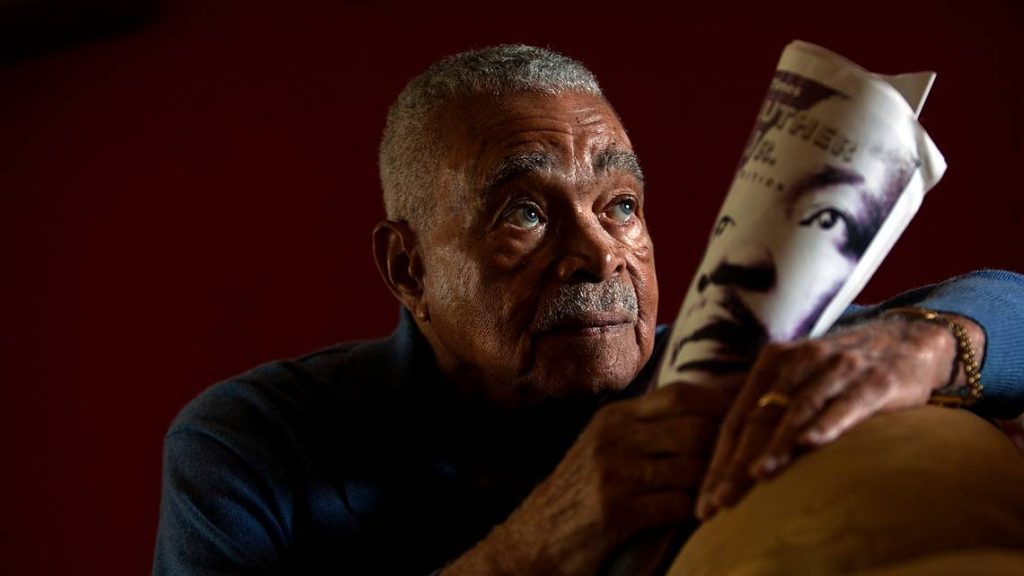
Garth Reeves, Miami Times Publisher, Dies at 100
“Garth C. Reeves Sr., publisher emeritus of The Miami Times and a voice for the aspirations of African Americans in Miami for most of the past century, died on Monday,” Howard Cohen wrote Tuesday for the Miami Herald.
“He had turned 100 on Feb. 12.
“The Miami Times was the only job publisher emeritus Garth C. Reeves Sr. ever had, aside from serving in the Army during World War II. He was proud of that distinction. Reeves’ energy in running the landmark black-owned paper would impact the lives of countless families in South Florida. He’d found his life’s calling — to serve as a voice for the black community. He knew no better job. . . .”
Among Reeves’ honors was induction in 2017 to the National Association of Black Journalists
Hall of Fame.

Photos ‘To Die For’ of Jemele Hill’s Wedding
“Sports journalist Jemele Hill married her longtime love Ian Wallace in a gorgeous California ceremony, and the photos are to die for,” Essence magazine wrote Nov. 11, updated Nov. 15, over a story by Jasmine Grant that featured those photos.
Tammy La Gorce wrote in the New York Times Nov. 9 about how the couple met.
“The groom, 39, works in medical sales for Applied Medical, which is based in Rancho Santa Margarita, Calif. The groom also graduated from Michigan State. He is the son of Tanya Bailey of Detroit and Kelvin Wallace, also of Detroit.
“Ms. Hill met Mr. Wallace in September 2014 during their alma mater’s homecoming weekend. Ms. Hill was grand marshal of the homecoming parade. . . .”
Support Journal-ismsFacebook users: “Like” “Richard Prince’s Journal-isms” on Facebook.
Follow Richard Prince on Twitter @princeeditor
Richard Prince’s Journal-isms originates from Washington. It began in print before most of us knew what the internet was, and it would like to be referred to as a “column.” Any views expressed in the column are those of the person or organization quoted and not those of any other entity. Send tips, comments and concerns to Richard Prince at journal-isms-owner@yahoogroups.com
View previous columns (after Feb. 13, 2016).
- Diversity’s Greatest Hits, 2018 (Jan. 4, 2019)
- Book Notes: Is Taking a Knee Really All That? (Dec. 20, 2018)
- Book Notes: Challenging ’45’ and Proudly Telling the Story (Dec. 18, 2018)
- Book Notes: Get Down With the Legends! (Dec. 11, 2018)
- Journalist Richard Prince w/Joe Madison (Sirius XM, April 18, 2018) (podcast)
- Richard Prince (journalist) (Wikipedia entry)
- February 2018 Podcast: Richard “Dick” Prince on the need for newsroom diversity (Gabriel Greschler, Student Press Law Center, Feb. 26, 2018)
- Diversity’s Greatest Hits, 2017 — Where Will They Take Us in the Year Ahead?
- Book Notes: Best Sellers, Uncovered Treasures, Overlooked History (Dec. 19, 2017)
- An advocate for diversity in the media is still pressing for representation, (Courtland Milloy, Washington Post, Nov. 28, 2017)
- Morgan Global Journalism Review: Journal-isms Journeys On (Aug. 31, 2017)
- Diversity’s Greatest Hits, 2016
- Book Notes: 16 Writers Dish About ‘Chelle,’ the First Lady
- Book Notes: From Coretta to Barack, and in Search of the Godfather
- Journal-isms’ Richard Prince Wants Your Ideas (FishbowlDC, Feb. 26, 2016)
- “JOURNAL-ISMS” IS LATEST TO BEAR BRUNT OF INDUSTRY’S ECONOMIC WOES (Feb. 19, 2016)
- Richard Prince with Charlayne Hunter-Gault,“PBS NewsHour,” “What stagnant diversity means for America’s newsrooms” (Dec. 15, 2015)
- Book Notes: Journalists Follow Their Passions
- Book Notes: Journalists Who Rocked Their World
- Book Notes: Hands Up! Read This!
- Book Notes: New Cosby Bio Looks Like a Best-Seller
- Journo-diversity advocate turns attention to Ezra Klein project (Erik Wemple, Washington Post, March 5, 2014)
Columns below from the Maynard Institute are not currently available but are scheduled to be restored soon on journal-isms.com.
- Book Notes: “Love, Peace and Soul!” And More
- Book Notes: Book Notes: Soothing the Senses, Shocking the Conscience
- Diversity’s Greatest Hits, 2015
- Diversity’s Greatest Hits, 2014
- Diversity’s Greatest Hits, 2013
- Diversity’s Greatest Hits, 2012
- Diversity’s Greatest Hits, 2011
- Diversity’s Greatest Hits, 2010
- Diversity’s Greatest Hits, 2009
- Diversity’s Greatest Hits, 2008
- Book Notes: Books to Ring In the New Year
- Book Notes: In-Your-Face Holiday Reads
- Fishbowl Interview With the Fresh Prince of D.C. (Oct. 26, 2012)
- NABJ to Honor Columnist Richard Prince With Ida B. Wells Award (Oct. 11, 2012)
- So What Do You Do, Richard Prince, Columnist for the Maynard Institute? (Richard Horgan, FishbowlLA, Aug. 22, 2012)
- Book Notes: Who Am I? What’s Race Got to Do With It?: Journalists Explore Identity
- Book Notes: Catching Up With Books for the Fall
- Richard Prince Helps Journalists Set High Bar (Jackie Jones, BlackAmericaWeb.com, 2011)
- Book Notes: 10 Ways to Turn Pages This Summer
- Book Notes: 7 for Serious Spring Reading
- Book Notes: 7 Candidates for the Journalist’s Library
- Book Notes: 9 That Add Heft to the Bookshelf
- Five Minutes With Richard Prince (Newspaper Association of America, 2005)
- ‘Journal-isms’ That Engage and Inform Diverse Audiences (Q&A with Mallary Jean Tenore, Poynter Institute, 2008)

1 comment
Right On Mike Harriet!!!!!!
It is awesome to observe Black Journalists Truth Telling and making an impact with White Politicians
BLM